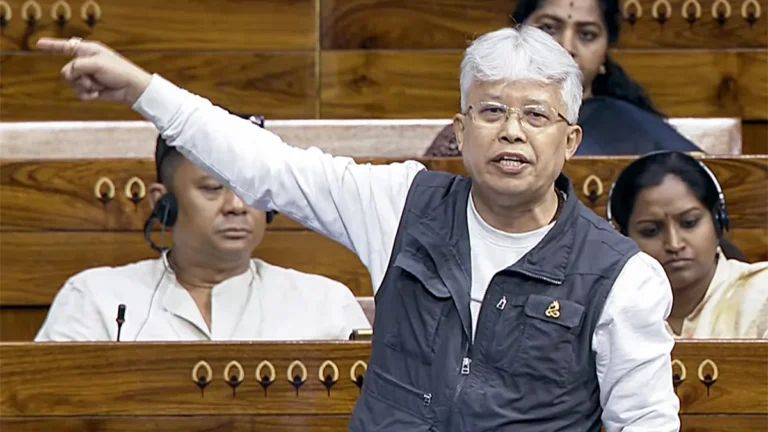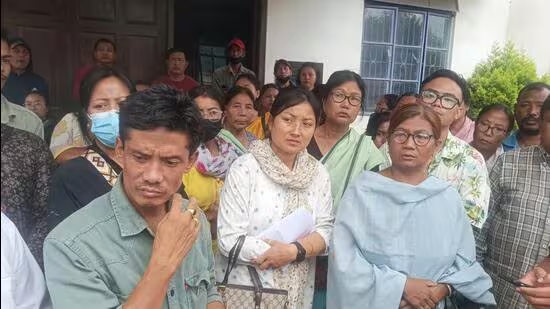Manipur General Strike Looms Large in Thoubal: A Community in Tension
Summary of the News
A general strike is intensifying in the Thoubal district of Manipur, creating significant unrest among residents. Organized by multiple civil society groups, the strike stems from long-standing demands regarding governance and infrastructure. The situation in Thoubal reflects broader dissatisfaction and unresolved socio-political issues in the state. Citizens, business owners, and travelers are feeling the impact as the district braces for extended disruptions.
Understanding the Reasons Behind the General Strike in Thoubal
What Sparked the Tension?
Manipur, a northeastern state often caught in a web of socio-political challenges, has yet again become the center of attention as a general strike is announced in Thoubal district. But what led to this? Several unresolved issues, ranging from infrastructural neglect to administrative concerns, have pushed civil society groups to organize a mass protest.
While Thoubal is not new to such demonstrations, this particular strike is different. It involves multiple stakeholders who are united in their demand for better governance, public services, and development. The strike, which threatens to disrupt daily life in Thoubal, could have a lasting impact on the local economy and the state’s political dynamics.
Infrastructural Neglect in Thoubal
One of the key reasons behind the strike is the perceived neglect of Thoubal’s infrastructure. Roads, hospitals, educational institutions, and other public services in the district have been subpar for years, leaving residents frustrated. When the local government repeatedly failed to address these concerns, civil society groups took matters into their own hands.
Thoubal’s citizens have long felt that their district has been overlooked in terms of development, especially when compared to Imphal, the capital city. Pothole-filled roads, lack of adequate healthcare facilities, and an unreliable electricity supply are just some of the issues plaguing the area. As a result, frustration has been building up for years, culminating in the ongoing strike.
The Role of Civil Society in Manipur’s Political Landscape
Civil Society’s Influence in Manipur
In Manipur, civil society groups play a pivotal role in shaping public opinion and pushing for reforms. These organizations are often at the forefront of movements demanding better governance, as elected officials sometimes fail to deliver on their promises. Thoubal’s general strike is just one example of how civil society can mobilize people and create pressure for change.
What sets Manipur’s civil society groups apart from those in other states is their deep-rooted connection with the common people. These groups, often led by local leaders, are seen as more approachable and trustworthy than traditional politicians. Their calls for strikes, protests, or boycotts are usually met with widespread support, as they reflect the genuine concerns of the masses.
Previous Strikes and Protests in Thoubal
Thoubal is no stranger to political activism. Over the years, the district has witnessed several protests and strikes, often centered around local governance issues. While some of these movements have led to tangible results, others have ended without much success. However, what’s notable is that each strike leaves a mark on the district’s socio-political landscape, pushing leaders to at least take notice.
This current strike is different in that it involves a broader coalition of civil society groups, which could give it more staying power. The involvement of various community leaders means that the strike is likely to sustain for a longer period, potentially forcing the state government to intervene.
The Broader Impact of Strikes on Manipur’s Economy and Society
Economic Disruptions in Thoubal
Strikes, while an effective tool for demanding change, come at a cost. The ongoing general strike in Thoubal is already disrupting the local economy. Businesses are forced to shut down, transport is paralyzed, and educational institutions remain closed. For daily wage laborers, the strike is particularly devastating, as they lose their source of income during such periods of unrest.
The strike also affects the larger economy of Manipur, as Thoubal is a key agricultural hub in the state. Farmers and traders rely on a functioning market to sell their produce, and with the market shut down, they are left in limbo. Additionally, the transport of goods to and from the district has been halted, leading to potential shortages in neighboring areas.
Social Consequences of the Strike
Beyond the economic impact, the strike also affects the social fabric of Thoubal. Tensions are running high as different sections of society grapple with the uncertainty of how long the strike will last. Families are concerned about the safety of their loved ones, and there is a growing sense of anxiety as the situation escalates.
Strikes like these also have a lasting impact on the mental well-being of residents, particularly children and the elderly. The sense of unease that comes with prolonged periods of unrest can create a climate of fear, making it difficult for the community to return to normalcy even after the strike ends.
Government’s Response to the Thoubal Strike
What Has the State Government Done So Far?
As the general strike in Thoubal gains momentum, the question arises: what is the state government doing to address the concerns of the people? So far, the response has been relatively muted. While there have been statements from local politicians urging for peace and patience, concrete actions to resolve the issues at hand have been lacking.
This is not the first time that the government has been slow to respond to protests in Manipur. In the past, strikes and demonstrations have often been met with delayed action, which only serves to exacerbate tensions. The people of Thoubal are now looking to the state government to take immediate steps to address their grievances, or risk further unrest.
Will the Strike Lead to Lasting Change?
It remains to be seen whether the general strike in Thoubal will result in any meaningful change. If history is any indication, the government may eventually give in to some of the demands made by civil society groups. However, lasting change will require more than just short-term fixes. The government will need to invest in Thoubal’s infrastructure and public services if it hopes to prevent future strikes.
The challenge lies in finding a balance between addressing immediate concerns and implementing long-term solutions. While the strike may force the government’s hand in the short term, sustainable development in Thoubal will require ongoing dialogue between the state and civil society groups.
The Future of Civil Protests in Manipur
A Precedent for Future Strikes?
The general strike in Thoubal could set a precedent for future protests in Manipur. Civil society groups across the state will be closely watching how the situation unfolds. If the strike leads to tangible results, it could encourage other districts to follow suit, using strikes as a means to push for development and better governance.
However, this could also lead to a cycle of unrest, with various groups resorting to strikes as their primary tool for demanding change. While civil protests are an essential part of democracy, frequent strikes can also destabilize a region, leading to long-term economic and social consequences.
What Can Be Done to Prevent Future Strikes?
To prevent future strikes, the state government will need to take a proactive approach. This means addressing the root causes of unrest before they escalate into full-blown protests. Improved infrastructure, better public services, and transparent governance are key to ensuring that the people of Thoubal—and Manipur as a whole—feel heard and represented.
Moreover, fostering a healthy dialogue between civil society groups and the government can help prevent future strikes. When people feel that their concerns are being addressed through proper channels, they are less likely to resort to protests and strikes as their only means of making their voices heard.
FAQs
- What is the main reason behind the general strike in Thoubal?
The strike was organized due to long-standing grievances regarding poor infrastructure and lack of government attention to the district’s needs. - How is the strike affecting daily life in Thoubal?
The strike has led to the shutdown of businesses, disruption of transportation, and closure of schools, affecting the local economy and daily life. - What role do civil society groups play in the strike?
Civil society groups are leading the strike, advocating for better infrastructure, public services, and governance in Thoubal. - Has the government responded to the strike?
While there have been statements urging for peace, the government’s concrete actions to address the issues have been slow so far. - What is the likely outcome of the strike?
The outcome remains uncertain, but the strike could lead to short-term concessions from the government, though lasting change will require more sustained efforts.



